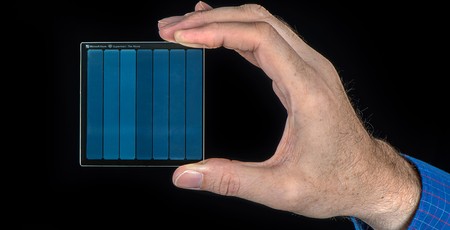Microsoft demonstrates Project Silica, a glass-based storage medium
November 5, 2019 | 16:39
Companies: #microsoft

Could the future of storage media be glass? That's the thinking behind Microsoft's Project Silica.
Demonstrated as a proof of concept as part of Microsoft Innovation Stories, Project Silica uses 'ultrafast laser optics and artificial intelligence to store data in quartz glass'. Microsoft joined up with Warner Bros to showcase this with a copy of 1978's Superman: The Movie stored on a coaster-sized piece of glass.
Besides looking both cool and like something out of a sci-fi film, it's also a near-indestructible form of storage media. The hard silica glass survived being boiled, scratched, scoured, demagnetised, microwaved, as well as baked in an oven, without any loss of data.
It's created by encoding data in glass with a laser which creates layers of three-dimensional nanoscale gratings and deformations at various depths and angles. A 2mm-thick piece of glass is able to hold around 100 layers of these gratings, also known as 'voxels' - the 3D equivalent of pixels. Once formed, polarised light is then passed through the glass, which is decoded and read back using machine-learning algorithms.
In particular, such technology could be incredibly important for companies like Warner Bros, keen to store their historic film collections on a medium that can survive hundreds of years.
Currently, digitally-shot films are generally preserved by repeatedly copying and moving files across magnetic drives every few years. Studios also back up their movies by creating a third archival copy on analog film which is then split into three colour components and transferred onto black and white film negatives to avoid colour fading. It's both convoluted and expensive, with something like Project Silica seeming a far better solution.
For now, Project Silica is still at the proof-of-concept stage, but it's immensely promising. Microsoft Azure's chief technology officer, Mark Russinovich, is confident about its future, citing 'I’m not saying all of the questions have been fully answered, but it looks like we’re now in a phase where we’re working on refinement and experimentation, rather asking the question "can we do it?"'
After all, with storage becoming essential for everything from your family photos to medical records or historic cinematic moments, it's important to have a safe form of storing such content. Hard-disk drives can wear out after only a few years with magnetic tape lasting about five to seven years. It's expensive business, and glass storage has the potential to become a much lower-cost option for companies that operate at the cloud scale.
And maybe, just maybe, one day it could be something we see more widespread.

MSI MPG Velox 100R Chassis Review
October 14 2021 | 15:04








Want to comment? Please log in.